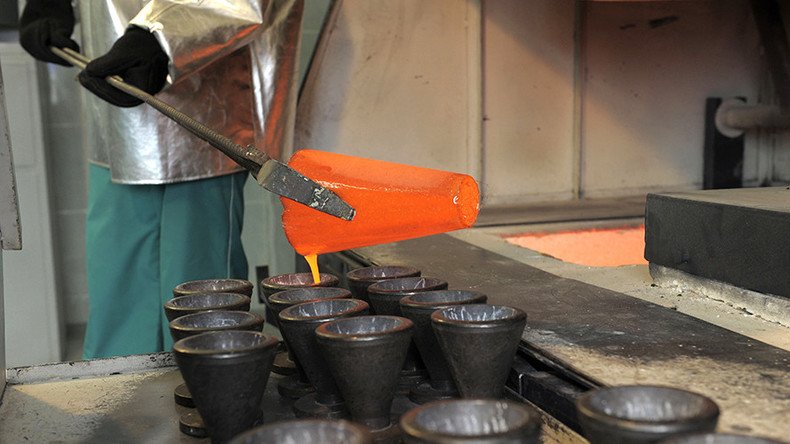Modern alchemy: Russian scientists discover how to extract gold from coal

Researchers from the Russian Academy of Sciences’ Far East branch say they are building a facility to make gold out of coal.
Although the science is no fairy tale, to the dismay of business owners, the process is not as productive as they might hope – burning a ton of coal yields one gram of gold, tops.
At present, the scientists are setting the bar even lower, expecting a yield of 0.5 grams, or 1,500 rubles, per ton.
“We burn a ton – we gain 1,500 rubles,” Oleg Ageev, CEO of Complex Innovative Technologies of the Amur Scientific Center, said in a press statement.
At current exchange rates, that is roughly $23 US dollars.
The discovery of gold lacing in coal is the result of 15 years of study from different fields.
To create the gold, smoke created in burning coal goes through a hundred-fold purifying system. The residue is then flushed through a filter with water, allowing a gold concentrate to be extracted that is later used to make the precious metal.
The scientists are planning to test the gold-making equipment in one of the Amur region’s boiler houses next year, and ultimately hope to receive a grant to develop and implement an industrial grade device.
“We plan to use municipal boiler houses to implement our filtering system because they burn about eight to 10 thousand tons in a season, and that’s potentially 10 kilos of gold.”
Deputy head of the Amur scientific center of the Russian Academy of Sciences’ Far East branch, Andrey Konyushok.
The whole operation is on hold until spring kicks in because of subzero temperatures. Part of the process takes place outside and the water used for filtering freezes up.













